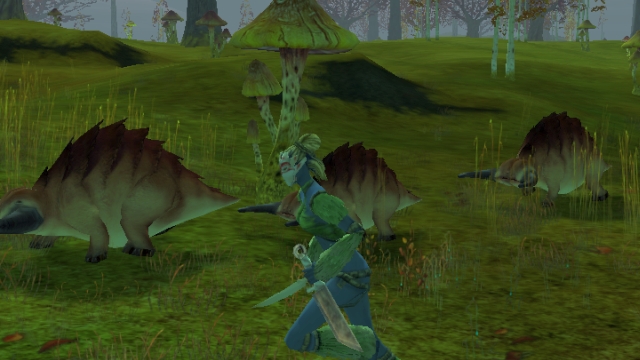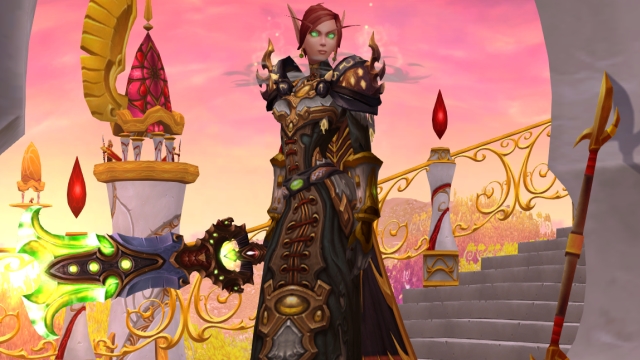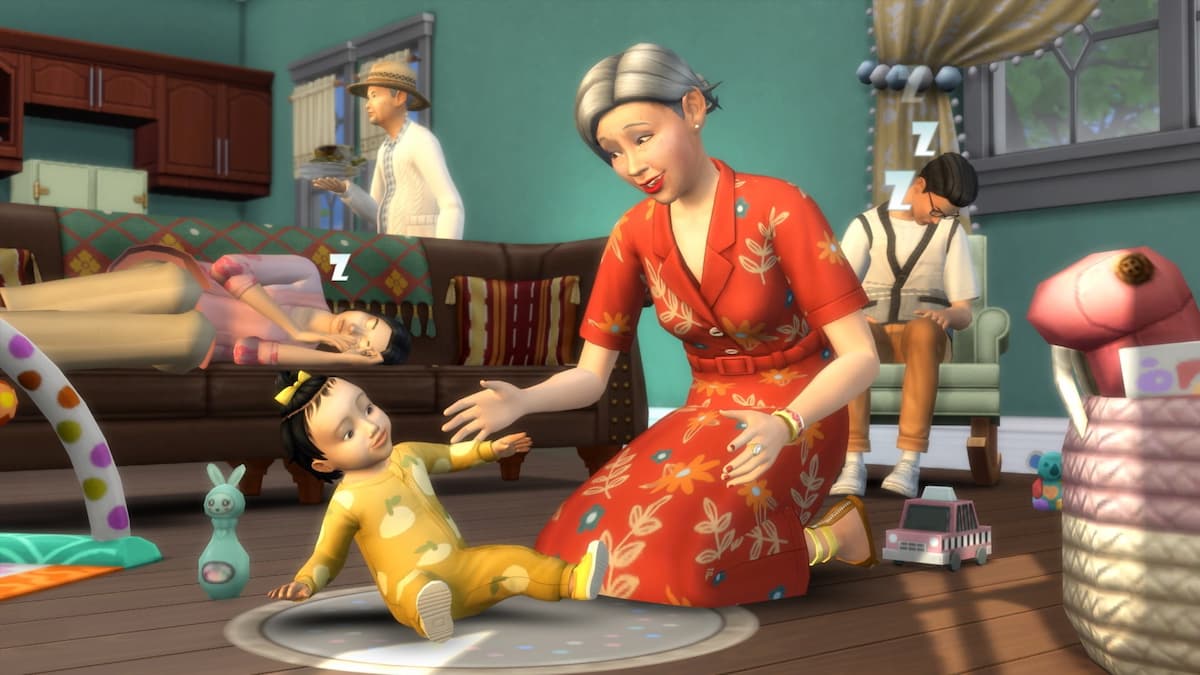Guilds have rules. We’ve talked about that a lot. What we haven’t discussed heretofore is what happens when those rules are broken. “The person who broke the rule needs to be punished” is pretty obvious, but the little things like “how” need to be covered. Unless your guild consists solely of members of your household, punishments like “do the dishes for the next week” aren’t really going to work.
Your options in most games are pretty limited; there is a decided dearth of games in which you can place your disobedient guild members in an oubliette until you feel like letting them out. (That would have logistical problems, for starters.) But you do have options for punishment, and today, I’m going to run down the five biggest ones whilst discussing when to use them and when they just plain don’t work.

Warning
You have gotten a warning at your job. It’s fine. We all have. At one point, I even got the dreaded Formal Written Warning at a job about a week before I got promoted. That fragment of an anecdote pretty well sums up the usual attitude to take toward warnings, which is that they’re not to be taken terribly seriously.
Warnings are an easy punishment to use, since they don’t require a whole lot of effort from officers. Unfortunately, they’re also a very easy punishment to completely ignore, because usually a “warning” just means that the officer said “don’t do that,” which means you have to not do that while that officer is watching until it fades from memory. It is ineffectual.
As a punishment, a warning is never going to have much in the way of teeth, but it works well as a buffer assuming that the officers are actually keeping track of this. “I’m giving you a warning for this” means absolutely nothing. “I’m giving you a warning; next time, you’re going to be unable to chat in the guild channel for two weeks” means something.
Carefully tailoring the “next time” punishment and the duration of that warning is also useful, as no one wants to forever be one black mark away from a major penalty; all warnings should be in place for a maximum of three months, after which time you can be reasonably confident something warnable won’t crop up again if it was a momentary blip.
Overall, warnings are useful just so you don’t come down with full wrath on every petty offense. But make sure to give them some teeth.

Fines
In MMOs, there are really two sorts of fines you can levy. The first is a proactive fine, such as making someone toss 100,000 gold in your guild chest in World of Warcraft. The second is a reactive fine; the next time a token drops that you could use in Star Wars: The Old Republic, you have to pass on it and let someone else have it.
Fines are, by themselves, an effective punishment. Someone takes an item that they should have passed on, they have to pass on the next thing they want. Someone yoinks an item from the guild chest, they have to pay back the value of the item plus some extra. Unfortunately, fines also have the problem of being entirely voluntary; you can’t force another player to pay the fines, and if they didn’t care about the rules enough to incur the fine, they might well not care about them enough to pay the fine.
Some people also have a nasty habit of using fines as buying the otherwise unpurchaseable; I knew someone in WoW who regularly stole items from raids and then paid the fine, reasoning (correctly) that the gold cost was something he could earn while the items themselves were otherwise impossible to buy. Not a great guy, but he had a strategy that worked.
As such, fines are something best put into place as part of another punishment, or as a slap on the wrist for something that doesn’t matter too much. Keep them small and use them more to punish inattentiveness than outright malice, so people are likely to grumble for a moment but then acquiesce on the grounds of fairness.

Demotion
Most guilds need more than three ranks, or even four ranks. When handled correctly, ranks are a measure of trust. If you’ve been with the guild for three years, you get more privileges; I trust you to access the guild bank freely and even change the daily message if need be, because you’re probably not going to screw with people.
Demotion, however, is useful. Consider, for a moment, a guild with eight ranks; the top two are the founder and officer, the bottom rank is a specialized punishment rank, and the others have slowly ascending privileges. If you get demoted in that environment, that indicates that your punishment isn’t just a loss of privilege, although it’s that as well. It’s an indication that the guild trusts you less. Even if the change in rank just means there’s one batch of items you can’t take from the guild chest any more, you feel that shift.
Obviously, a lot of the utility of demotion comes down to the tools you have at your disposal. In some games, you can offer fine control; a guild in Final Fantasy XIV has many tools about different options for players at different ranks, so it’s easy to declare that someone no longer has the right to tend the garden and potentially reap those benefits. Some games offer less fine control. But a demotion is always something to consider, and even if you can’t reflect it in the game, you can still mark it in other ways, such as making sure the “demoted” player no longer has an automatic team placement or pick on your Heroes of the Storm team.
You can also have a demotion be temporary or permanent. The former is usually appropriate for smaller things. Someone got a warning about being a jerk to non-guild members, then they did it again, so now they get a notch down for a month. The latter, however, is pretty serious; it means that the member in question did something really bad, and they need to really rebuild trust before they’re allowed full access again, if ever.

Removal
The semi-nuclear option, and one that should never be at the top of a list except for the most serious offenses. If you’re in a competitive League of Legends team, for example, removal is an immediate and deserved go-to if a member leaks your strategies to an opposing team. Usually, though, removal is the option when someone just will not stop screwing up.
Rather than being a single cascading effect, removal should be considered when lesser punishments are having no effect. You’ve demoted someone down as low as you can, even to the new recruit tier, but they just keep breaking the rules. At this point, it’s almost done with sadness. You don’t want to kick them out, but nothing else works at this point. It’s sad, but necessary.
Wait, did I just say this was the semi-nuclear option? Yes. Because there’s a worse punishment.
Blacklisting
This is when someone is just so dedicated to being disruptive that you have to turn your back on them completely. The player isn’t just removed from your guild; you contact other guilds and tell them not to recruit this player. You refuse to party or interact with this player. You full-on shun them, bar them from any interaction with the guild. They’re gone to you so far as you’re concerned.
Needless to say, this is extreme. Sometimes, however, it’s justified; you just have to have a situation in which the player his someone you actively want gone from all mentions. I’ve been in guilds wherein two players separated from a real-life relationship because one of them was abusive, and the guild, in turn, shut the abuser out completely. I don’t know how his story ended, but I know that he was not welcome in any space which could conceivably involve our guild.
Most of the time, you don’t need to go this far. Heck, most of the time you don’t even need to go half this far. The majority of the players you’ll meet just need a little nudge, some warnings, and perhaps the occasional demotion. But it’s important to understand your full spread of options, just in case they ever come up.










Published: Sep 29, 2016 09:53 am